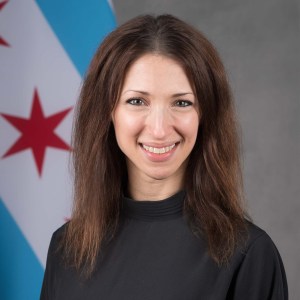

I have never been a fan of specialized units with the Chicago Police Department as they all too often are poorly supervised and charged with tactics that are repressive and unconstitutional; they also have a long history of corruption and abuse. Mitchell talks about the need for the Chicago Police Department to provide more police officers to higher crime areas of the city. This process is called ‘beat realignment’ and would shrink some beats and enlarge others depending on the amount of crime in that particular beat. Every superintendent of the Chicago Police during Mayor Daley’s tenure has promised to deliver on this issue. Of course, as is the Chicago way, not a single one has delivered on this promise. Weis is just the latest in a string of top police officials to promise to realign beats.
What few observers (including Mitchell) recognize is that the deployment of special units such as the Special Operations Section (SOS— which is now defunct after proving horribly corrupt and abusive) created by former Superintendent Phil Cline and current Superintendent Jody Weis have resulted in beat realignment by stealth. The special units have quietly removed officers from north side districts for deployment in hot spots around the city. There is reason to infer that these special units have spent a great deal of their time deployed on the south and west sides of the city, right where Mitchell would want them to be. The reason we can infer this is that we know that the citizens being abused, falsely arrested, and robbed by the Special Operations Section where not white northsiders.
Maybe the real discussion that needs to happen is a true evaluation of the crime preventive capabilities of the Chicago Police Department as presently constituted. Mitchell & most of the media make the generalization that the low crime areas in the city are low crime mainly because of the police presence in their community. I have little doubt that the police play a role in crime prevention, but I challenge any assumption that would believe their role is a major role.
I live in Roscoe Village; a community area victimized by the string of north side assaults, and really cannot tell you how little I see the police. With the exception of their stopping in a Starbucks on my block I have never really felt strong police presence in my area. Maybe this is because I live in a safe area and the police just seem to blend in or because I am white and this is somehow a demonstration of my privilege that I am failing to grasp.
As a social scientist in the making (I have an M.A. in Criminal Justice and I am pursuing a PhD in Criminology, Law, and Justice) I know that violence in communities has more to do with employment, education, community cohesion, and long patterns of racism and exclusion in our city. You can see from the list of my causes there is no mention of the criminal justice system. In fact, one role they do play is in replicating patterns of exclusion and repression. Currently in Illinois felons are barred from obtaining something like 50 + licenses from the State strictly based on their felony conviction. Combine this form of exclusion with the overall criminal justice system’s pattern of targeting black and brown communities for drug possession and selling rather than the bars in and around the string of communities on the north side that were recently victimized. I have seen bartenders all too often deal drugs over the bar to local residents and have never heard of a single arrest stemming from this persistent activity. Arrests on the south and west side for drug dealing occur hourly.
It is not my attention to say that beat realignment should not occur, it should; however, I would seriously doubt that alone is going to reduce violence significantly in the south and west sides of our city. The Chicago Police simply are not a preventative force, and should not be thought of as one. For the most part, the differences between crime rates for different areas of the city have deeper social roots. You cannot expect communities that have been all but written off completely by the powers in this city to not struggle with violence. Simply looking to the police and the criminal justice system as the sole answer is a mistake. Only serious social investment in these areas of the city will bring about the sought after reductions in crime and violence.



